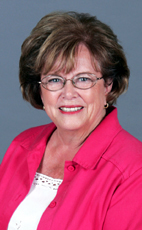Mr. Speaker, Canada is recognized throughout the world for its quality of life. We are committed to helping Canadian families, as the government said it would in the Speech from the Throne and in the Prime Minister's speech.
The government made a commitment to introduce legislation in this parliament to redesign parental benefits. We are extending employment insurance maternity and parental benefits from the current maximum of six months to one full year. We are making these benefits more flexible to meet the different needs of families. We are also making these benefits more accessible by increasing the number of parents eligible for support.
Presently there are several features of the EI program that are important for women. Through EI reform, every hour of work is covered and women working part time or holding multiple jobs can now be eligible for both EI regular and special benefits.
It is encouraging to see that maternity claims have remained virtually unchanged and that the duration of these benefits has remained the same. This is despite the fact that between 1995-96 and 1997-98 the birthrate has gone down by 4.6%. Prior to EI reforms, no women working part time were eligible for EI, let alone maternity benefits.
We also know that two-thirds of those who receive the most generous family supplement are women. Fifty-eight per cent of those participating in the small weeks adjustment projects, which provide workers in high unemployment regions with higher benefits, are women. The reach back provision for the active employment measures expands eligibility for women, providing increased help for stay at home mothers to get back to the workforce.
We also have a number of initiatives outside EI aimed at helping women enter or re-enter the workforce. These initiatives include: projects to promote the self-sufficiency of lone parents, 80% of whom are women; grants to help women pursue higher education; and programs focused on helping young women at risk. Two programs, the legislated employment equity program and the federal contractors program, were introduced to ensure that women have equal access to employment opportunities.
Canadian women have made major gains on the labour market. They now account for close to half of our manpower, compared to only 30% in 1966. Over the past four decades, the employment rate has increased more rapidly for women than for men. In the last 20 years, that rate has been the highest among G-7 countries.
In 1998, women of all ages had lower unemployment rates than men, and in October 1999, adult women had their lowest unemployment rate since 1975, 5.8%.
Women are getting better access to knowledge based jobs. In fact, women are enrolling in university at a much higher rate than men. Over 13% of women between 18 and 29 years of age were enrolled in university in 1997 compared to about 11% of young men. The number of women with post-secondary education is rising rapidly. In 1998, 28% of working women had a university degree, up from 22% in 1990. Despite this—

